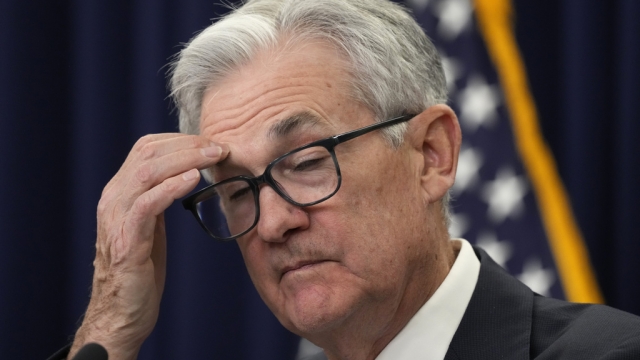Economists at the Federal Reserve are projecting a "mild recession" later this year, a potentially dismal sign for President Joe Biden ahead of the 2024 presidential election.
Staff members predict that recent turmoil in the banking industry will continue to weaken the economy through the end of 2023, with a recovery over the next two years, according to minutes from last month's meeting of the Federal Open Market Committee.
"Given their assessment of the potential economic effects of the recent banking-sector developments, the staff’s projection at the time of the March meeting included a mild recession starting later this year," the minutes read.
When Silicon Valley Bank collapsed last month, it became the second-largest bank failure in American history after Washington Mutual in 2008. It sent shockwaves through the tech industry, as it was the nation's 16th largest bank and had been a key financial conduit for several tech startups.
Just two days later, New York-based Signature Bank also collapsed, becoming the third-largest bank failure in U.S. history.
The Federal Reserve noted that recent developments in the banking sector will likely lead to tighter credit conditions for businesses and weigh on economic activity, hiring, and inflation.
After the meeting, the central bank ultimately decided to continue its fight against inflation, raising interest rates another quarter of a percent to its highest mark in 15 years.
Federal Reserve Chairman Jerome Powell has indicated that the U.S. banking system is sound and resilient but hinted that rate hikes will likely continue.
"Over the past year, we have taken forceful actions to tighten the stance of monetary policy," Powell said days before Silicon Valley Bank collapsed. "We have covered a lot of ground, and the full effects of our tightening so far are yet to be felt. Even so, we have more work to do."
Economic conditions play a major role in how the American public views a sitting president, and President Biden's approval rating is nearing the lowest point of his presidency.
He's taken ambitious steps to boost the economy, including his $1.9 trillion coronavirus relief package, infrastructure investments, and raising taxes on corporations and the wealthy. But those efforts involve multi-year investments and have yet to provide much optimism to Americans who are faced with staggering prices for necessities like food, gas and housing.
SEE MORE: How do we know if we're going through a recession?
Trending stories at Scrippsnews.com




